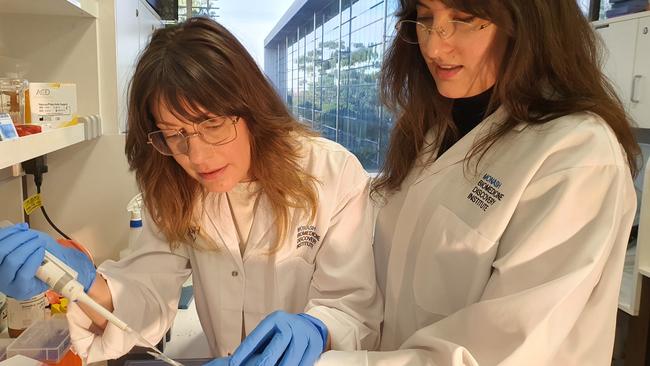Psychedelics potential ‘key’ to anorexia treatment but heed caution, say experts
Magic mushrooms have undergone a serious reputation change, with research showing signs the psychedelic holds the key to anorexia treatment – but experts say we can’t rush just yet.

“Magic mushrooms” could be used to tackle one of the nation’s worst mental health crises, with the latest research suggesting the psychedelic may be a potential treatment for anorexia.
Australia became the first country in the world last year to approve the use of psychedelics to treat mental illness – effectively shifting the reputation of magic mushrooms from hippy hallucinogenic to miracle medicine in one fell swoop. Magic mushrooms were originally considered as a treatment for depression, but clinical trials at the Monash University Biomedicine Discovery Institute in Melbourne have now shown promising outcomes for other psychiatric conditions.
Claire Foldi, who spearheaded the trial, said early results showed the active ingredient in magic mushrooms, psilocybin, could potentially treat anorexia nervosa, the leading cause of death among women aged 15-24.
“There is evidence to suggest that any psychiatric condition that is characterised by rigidly held, persistent, maladaptive thoughts could be treated or have those symptoms alleviated by psychedelics,” Dr Foldi said.
“The idea is that psychedelics facilitate reframing of previously held beliefs that allow you to better adapt to your current needs.”
Anorexia is a psychological illness marked by a consistent reduction in food intake, fear of gaining weight and body image distortion.
Dr Foldi said anorexia was characterised by cognitive inflexibility, which manifests itself in a “rigid focus on restricting calories, compulsive exercise even despite severe weight loss, and persistent negative thoughts about themselves and their bodies”.
“It’s an inability to break down those patterns of inflexible thought and behaviour to save themselves from starvation,” she said.

Dr Foldi and first-author Dr Kyna Conn found a specific mechanism within the brain where psilocybin can act to increase mental flexibility, opening the way for more targeted therapies. However, Dr Foldi warned against being swept up in the “hype” about psychedelics.
The caution comes after the typically conservative TGA downgraded MDMA and psilocybin to “controlled drugs” for psychiatric treatment in July 2023.
“There has been some sort of uproar in the psychiatric community because this move (the TGA downgrading) was potentially motivated by lobbying groups, and the medical professionals that are involved in psychedelic research weren’t consulted about the decision,” Dr Foldi said.
“We don’t have the training in place and we don’t have the procedures in place to safely prescribe psychedelics for these conditions.”
Dr Foldi said because trials had been carried out under strict controls and exclusions, little was known about the different effects psychedelics could have on different people.





To join the conversation, please log in. Don't have an account? Register
Join the conversation, you are commenting as Logout